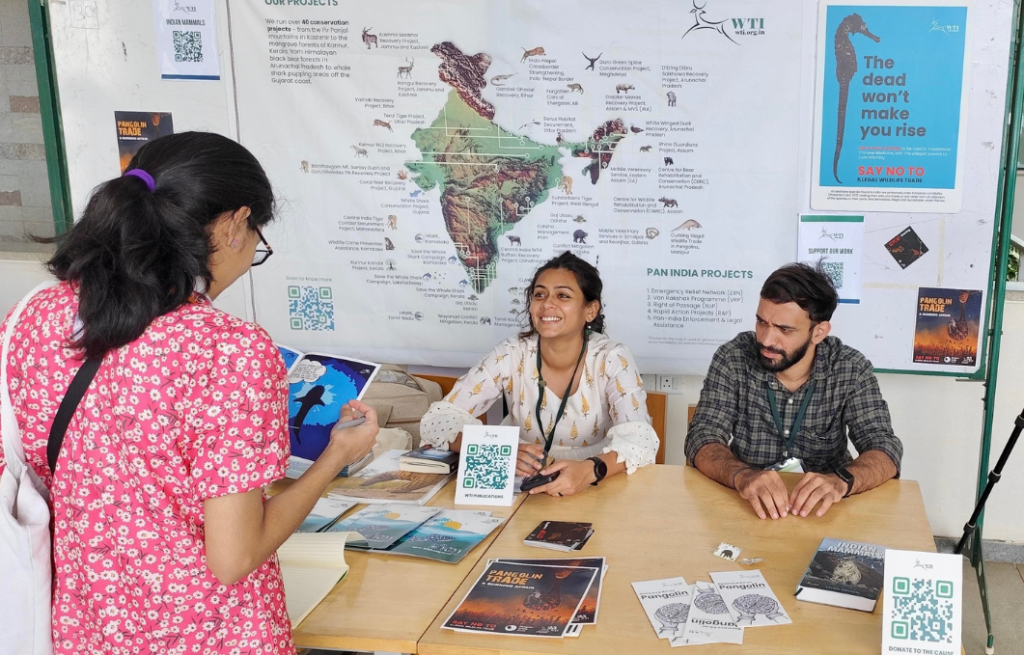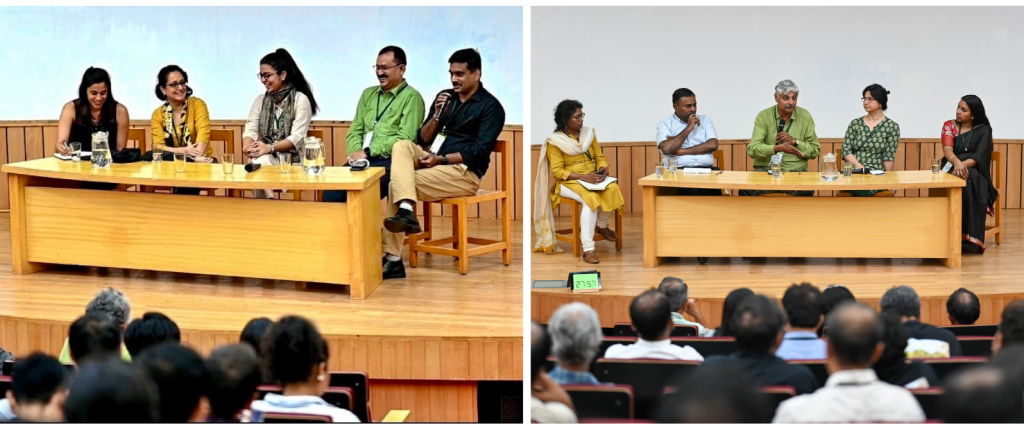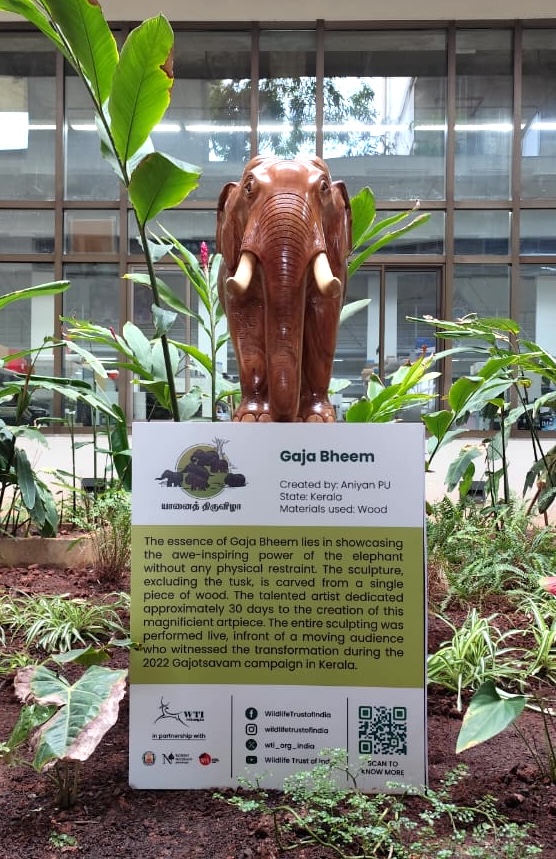WTI participates at the 1st-ever Indian Wildlife Ecology Conference 2024, Bangalore
The Indian Wildlife Ecology Conference (IWEC ‘24), held between June 14th and 16th, 2024 at the National Centre for Biological Sciences (NCBS), Bengaluru, marked India’s first national-level wildlife research conclave. The 3-day event was organised in partnership with the Wildlife Trust of India (WTI) and other esteemed organisations.
IWEC’24 serves as a platform for the growing community of Indian wildlife ecology researchers and institutions to engage in professional dialogue, share research findings, foster interdisciplinary collaboration, and support career development.

Team WTI set up an information kiosk at the conclave | Photo by Sreenanth K
WTI played a prominent role in this conclave, with our conservation experts presenting their work on combating illegal wildlife trade in India, conservation surveys, and exploring community ecology among other initiatives in a series of insightful meetings, dynamic discussions and creative sessions.
Jose Louies, CEO of WTI, participated in a panel discussion alongside Dr. Bibhab K. Talukdar, Secretary General and CEO of Aaranyak; Ms. Pradipty Bhardwaj, Legal and Cyber Intelligence Analyst at Langland Conservation; and Ms. Uttara Mendiratta, Independent Researcher & Consultant specializing in Illegal Wildlife Trade at Langland Conservation. The discussion was moderated by Dr. Nandini Velho, Project Lead at Canopy Collective, and focused on the Emerging Wildlife Trade in India. Mr. Louies highlighted key issues during the session including the alarming rates of tiger killings, rampant poaching activities, the illicit ivory trade, and the concerning growth of wildlife trade in cyberspace, which encompasses the trade in exotic animals.

Mr, Jose Loiues, CEO, WTI and Mr. Vivek Menon, founder & ED, WTI participated in panel discussions | Photo by Sreenanth K
Dr. Samir Kumar Sinha, Chief Ecologist and Dr. Tanushree Srivastava, Manager, Western Himalaya Mountain Ungulate Project along with Dr. Anindya Sinha and Mr. Sayan Banerjee from the National Institute of Advanced Studies (NIAS) participated in a Special Interest Group meeting – ’Mixing formal and experiential ecological knowledge. The meeting aimed to find pathways to integrate local ecological knowledge through the formal institutionalisation of collaborative research. A diverse group of participants comprising local community members and seasoned scientists, engaged in discussions under themes such as Coexistence, Natural Resource Management, and Traditional Knowledge.

Dr. Tanushree Srivastava presented on WTI’s Markhor Recovery Project in Kashmir | Photo by Sreenanth K
Additionally, Dr. Srivastava delivered a presentation on WTI’s efforts in Kashmir, focusing on the ‘Conservation Prospects of Markhor Capra falconeri in Kashmir Himalaya, India’ during an open session titled ‘Conservation Survey and Community Ecology.’ The presentation garnered positive feedback, including valuable suggestions for future work in the landscape from experts across the country.

Poster presentation on aquatic bycatch mortality and prawn seed collection in Sundarban Tiger Reserve by Samrat Paul | Photo by Sreenanth K
A notable highlight of the conclave was a poster presentation by Samrat Paul, Field Officer, Sundarban Tiger Project around a study on aquatic bycatch mortality and prawn seed collection in Sundarban Tiger Reserve, West Bengal. The conference concluded with a panel session represented by Vivek Menon, Founder and ED of WTI, engaging in an insightful discussion on the societal significance of wildlife ecology research.

Wooden elephant sculpture by a local artist from Kerala| Photo by Sreenanth K
Furthermore, participants had the opportunity to view impactful exhibits, including a life-size inflatable Whale shark as part of WTI’s ongoing ‘Save the Whale Shark Campaign’, and a wooden elephant art piece promoting the Gaj Utsav campaign.
The conclave concluded with a panel session represented by Vivek Menon, Founder and ED, WTI, engaging in an insightful discussion on the societal significance of wildlife ecology research.









